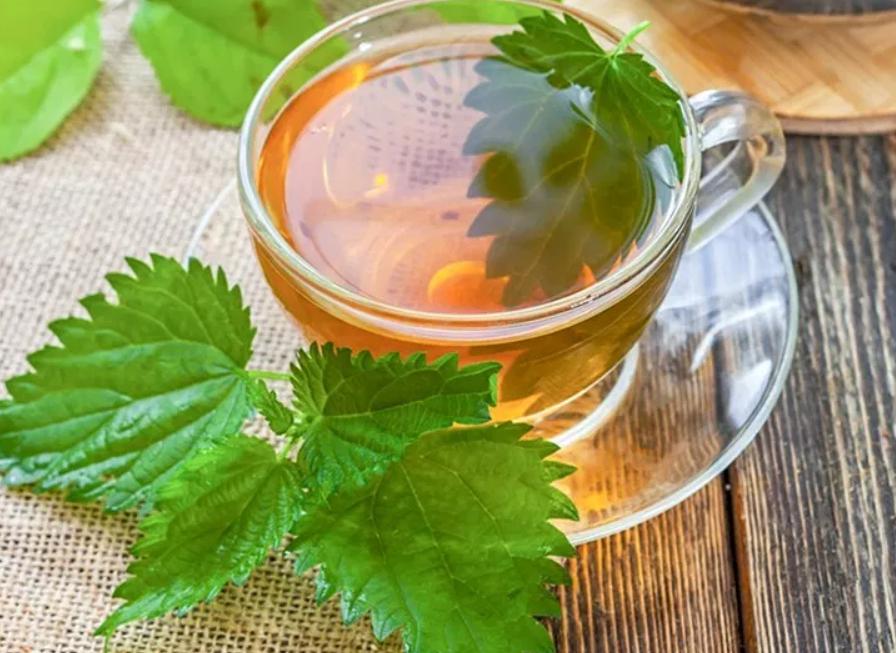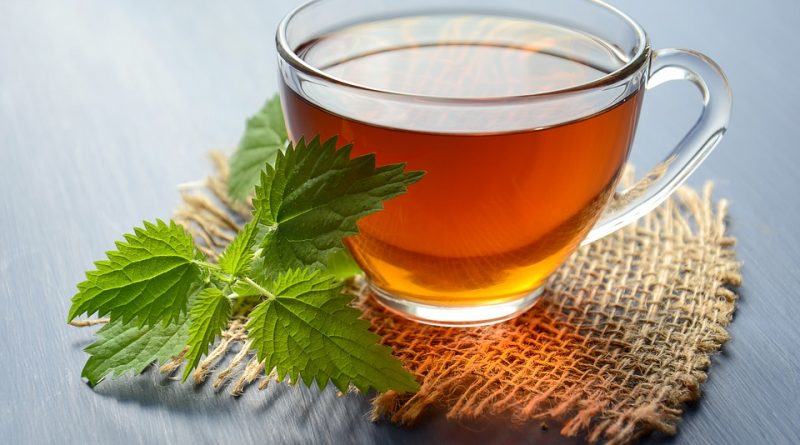Nettle tea, made from the leaves of the stinging nettle plant (Urtica dioica), is a herbal remedy that has been used for centuries in traditional medicine. Despite its prickly reputation, nettle transforms into a soothing, nutrient-dense tea when properly prepared. Packed with vitamins, minerals, and antioxidants, nettle tea is a powerhouse of health benefits.
Whether you’re looking to boost your energy, support your immune system, or soothe inflammation, nettle tea is a natural choice.
Let’s dive into its properties, benefits, and how to enjoy this herbal elixir.
What is Nettle Tea?
Nettle tea is made by steeping the leaves of the stinging nettle plant in hot water. The stinging nettle gets its name from the tiny hairs on its leaves and stems that can cause a temporary sting when touched. However, once dried or cooked, these hairs lose their sting, making the plant safe to handle and consume.
Nettle tea has a mild, earthy flavor with a slightly grassy undertone. It can be enjoyed on its own or blended with other herbs like mint or chamomile for added flavor.
Properties of Nettle Tea
Nettle tea is a nutritional powerhouse, rich in:
- Vitamins: A, C, and K
- Minerals: Iron, calcium, magnesium, potassium, and silica
- Antioxidants: Flavonoids, carotenoids, and polyphenols
- Other Compounds: Chlorophyll, amino acids, and anti-inflammatory agents
These properties make nettle tea a versatile and potent herbal remedy for a variety of health concerns.
Health Benefits of Nettle Tea
- Rich Source of Nutrients
Nettle tea is a natural multivitamin, providing essential nutrients that support overall health. Its high iron content makes it particularly beneficial for individuals with anemia or low energy levels. - Reduces Inflammation
Nettle tea contains anti-inflammatory compounds that can help alleviate symptoms of arthritis, joint pain, and other inflammatory conditions. It’s often used as a natural remedy for gout and muscle soreness. - Supports Detoxification
As a natural diuretic, nettle tea helps flush out toxins and excess fluids from the body. This can support kidney function and reduce water retention. - Boosts Immune System
The high levels of vitamins A and C in nettle tea strengthen the immune system, helping your body fight off infections and illnesses. - Promotes Healthy Skin
Nettle tea’s antioxidants and anti-inflammatory properties can help improve skin health by reducing acne, eczema, and other skin conditions. Its silica content also supports collagen production, promoting youthful, glowing skin. - Supports Hormonal Balance
Nettle tea is often used to alleviate symptoms of PMS and menopause, such as bloating, cramps, and mood swings. It may also help balance hormones by supporting the endocrine system. - Improves Digestive Health
Nettle tea can soothe the digestive tract, reduce bloating, and relieve constipation. Its anti-inflammatory properties may also help with conditions like irritable bowel syndrome (IBS). - Strengthens Hair and Nails
The silica and sulfur in nettle tea promote healthy hair and nail growth, reducing brittleness and improving strength.
How to Make and Consume Nettle Tea
Making nettle tea is simple and requires just a few ingredients. Here’s a basic recipe:
Ingredients:
- 1-2 teaspoons of dried nettle leaves (or a nettle tea bag)
- 1 cup of boiling water
- Honey, lemon, or mint (optional, for added flavor)
Instructions:
- Place the dried nettle leaves or tea bag in a cup.
- Pour boiling water over the leaves and let them steep for 5-10 minutes.
- Strain the tea and add honey, lemon, or mint if desired.
- Enjoy hot or let it cool for a refreshing iced tea.
Tips for Enjoying Nettle Tea
- Blend with Other Herbs: Combine nettle with peppermint, ginger, or chamomile for a flavorful twist.
- Drink Regularly: For best results, enjoy 1-2 cups of nettle tea daily.
- Use Fresh Nettle: If you have access to fresh nettle leaves, blanch them in hot water to remove the sting before steeping.
- Store Properly: Keep dried nettle leaves in an airtight container away from light and moisture to preserve their freshness.
Contraindications and Precautions
While nettle tea is generally safe for most people, there are a few precautions to keep in mind:
- Pregnancy: Nettle tea may stimulate uterine contractions, so it’s best avoided during pregnancy unless approved by a healthcare provider.
- Medication Interactions: Nettle may interact with blood thinners, blood pressure medications, and diuretics. Consult your doctor if you’re on medication.
- Allergies: If you’re allergic to plants in the Urticaceae family, you may also be allergic to nettle.
- Kidney Disorders: Due to its diuretic properties, nettle tea may not be suitable for individuals with kidney issues.

Nettle tea is a humble yet powerful herbal remedy that offers a wide range of health benefits. From reducing inflammation and boosting immunity to promoting healthy skin and hair, this nutrient-packed tea is a natural way to support your overall well-being. Whether you’re sipping it for its health benefits or simply enjoying its earthy flavor, nettle tea is a wonderful addition to your daily routine.
So, brew a cup, sit back, and let nature’s goodness work its magic!
Have you tried nettle tea?
Share your favorite ways to enjoy it and how it has benefited you in the comments below!

